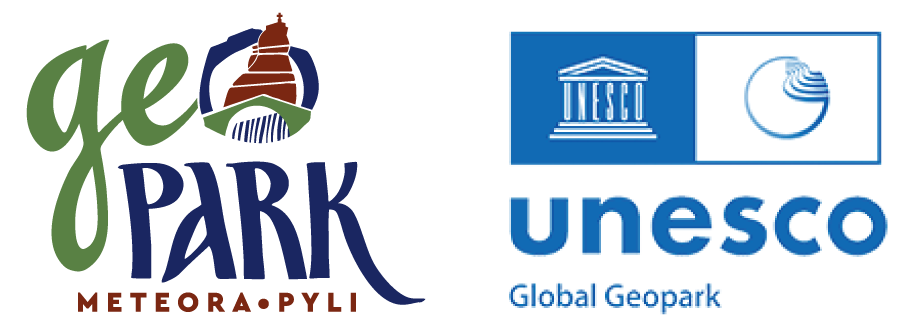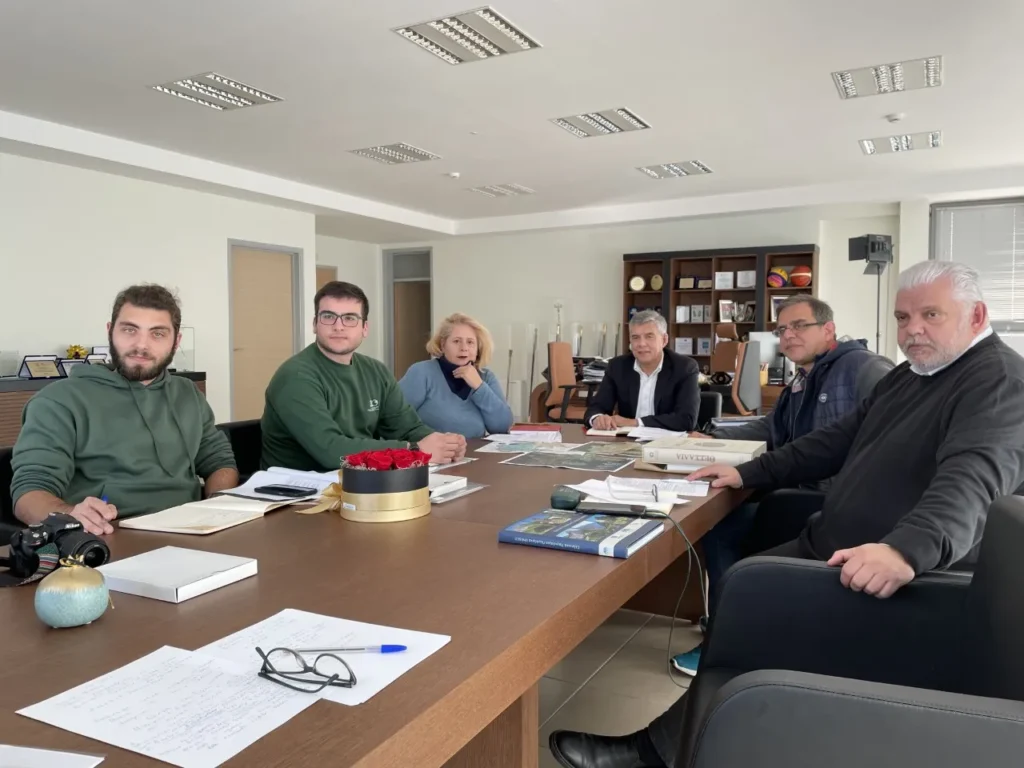The Region of Thessaly is emerging as a global nature tourism destination with the Geopark of Meteora – Pylis. This is a special collaboration project, with great development potential that leads to an extension of the tourist season in terms of quality and sustainability. The Region of Thessaly, with OFYPEKA, completed the process of preparing and submitting to UNESCO the Nomination File of the area of the Municipalities of Meteora and Pyli for its recognition as a UNESCO World Geopark, in cooperation with the Chamber of Trikala.
In the meeting held by the Thessaly Governor, Kostas Agorastos, with the president of the Hellenic Geoparks Committee and the Global Network of Geoparks, Professor Nikolaos Zouros, actions were planned for the evaluation of the candidacy by the UNESCO International Committee, which is visiting the Geopark of Meteora – Pyli at the beginning of summer. The meeting was attended by the Tourism Deputy Governor and responsible for drafting the nomination file, Yiannis Boutinas, University of the Aegean researchers Manolis Antonakis and Angelos Lambrakopoulos, and project manager Mara Samaras.
THE GEOPARK
Meteora-Pyli Aspiring UNESCO Global Geopark located in western Thessaly and covers an area of 2409.5 km2. Within the boundaries of the two municipalities of Meteora and Pyli, is dominated by impressive and unique geological sites, which explain the complex history of the birth of the Hellenic area. Among them, the huge rocks of Meteora is already recognized for its importance as a World Heritage Site from UNESCO in 1988. The area of the Meteora -Pyli Geopark has also a great ecological value which evidenced by 5 regions which have been included in the European NATURA 2000 Network as Special Areas for Conservation (SAC) and Special Protection Areas for birds (SPA), where some areas have both designation.
The Geopark also provides a rich cultural heritage from the beginning of human presence in Greece to the present day. The variety of the cultural sites and monuments, as well as the rich intangible heritage of the area constitute important resources of the Meteora – Pyli Geopark. The cultural highlight of the Geopark is undoubtedly the cluster of monasteries built on top of the Meteora rocks. The Meteora – Pyli Geopark highlights the evidence of its geological, natural and cultural heritage and the visitors can familiarize themselves with a rich network of geosites and ecotopes, archaeological sites and monuments. In addition, the visitors can participate in various ecotourist and athletic activities, educational programs, cultural festivals, as well as enjoy hiking through a unique natural environment.
GOALS AND BENEFITS
he Region of Thessaly through the recognition of the Meteora-Pylis area as Global, aims to renew the tourism identity of the area both domestically and globally, while it is estimated that the attraction of visitors, schools, universities and scientists from abroad will be strengthened. Highlighting the natural wealth and the geological monuments of the area makes it a field for the development of a variety of alternative tourism activities throughout the year.
The Meteora-Pyli Geopark is part of the wider strategic planning of the region’s tourism development, aiming to enrich the local tourism product with new dynamics of global visibility. The effort to the recognition of the Geopark of Meteora – Pyli is supported by the Municipality of Meteora and the Municipality of Pyli, by the Ephorate of Antiquities of Trikala and by the Chamber of Trikala.
The nomination file was prepared under the responsibility of the Region of Thessaly with the support of the Natural Environment and Climate Change Organization (OFYPEKA), in the context of the contract signed by the Governor of Thessaly Kostas Agorastos, the Deputy Minister of Environment Giorgos Amyras and OFYPEKA.
Responsible for the drafting of the Nomination File was the Tourism Deputy Governor, Mr. Yiannis Boutinas, who coordinated the competent services of the Region and the scientific team that supported the completion of the relevant process. The process of submitting the File was supported by the Greek National Committee for UNESCO.
Source: ertnews.gr

